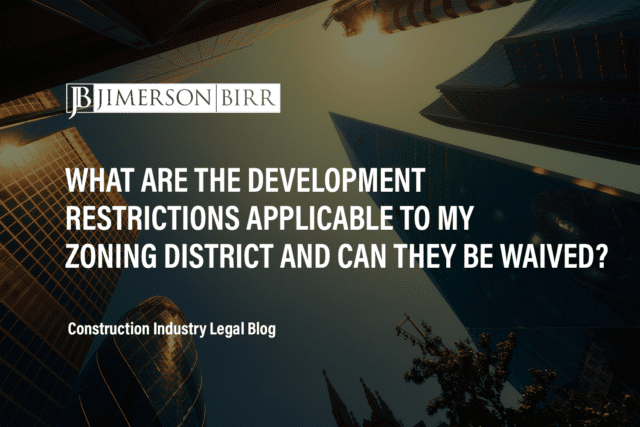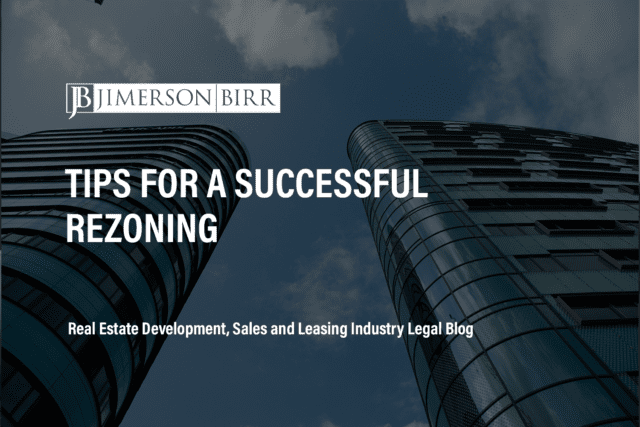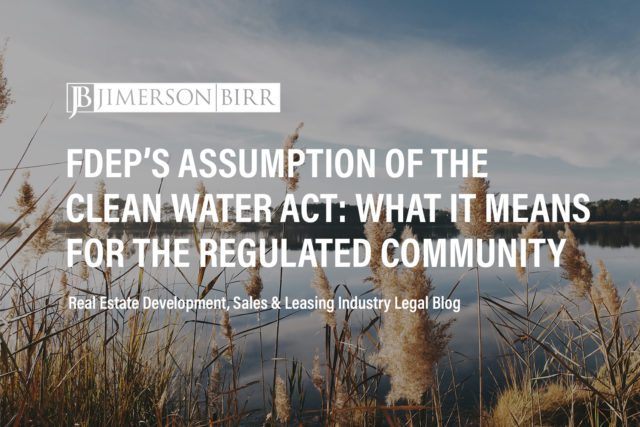What does stormwater permitting, management, planning, and compliance entail?
Stormwater management and compliance involve regulating and overseeing stormwater runoff to minimize pollution and protect water resources. In Florida, the Department of Environmental Protection (FDEP) and the Environmental Protection Agency (EPA) work together to administer the National Pollutant Discharge Elimination System (NPDES) permit program, a vital component of the Clean Water Act. This program addresses the discharge of pollutants into surface waters, including stormwater runoff from construction sites, industrial facilities, and municipal separate storm sewer systems
One example of this comprehensive process is the issuance of construction stormwater permits. These permits are prerequisites for projects disturbing one acre or more of land and require a stormwater pollution prevention plan outlining best management practices to minimize erosion, sedimentation, and pollution.
Another example is the regulation of municipal separate storm sewer systems. Municipalities in Florida must develop a stormwater management program detailing how they will reduce pollution from their storm sewer systems, educate the public, and monitor stormwater discharges.
Need help regarding environmental due diligence, permitting, mitigation, or compliance? Schedule your consultation today with a top environmental law attorney.
Which laws and regulations apply to stormwater permitting, management, planning, and compliance in Florida?
Florida’s primary laws and regulations governing stormwater permitting, management, planning, and compliance are the Florida Administrative Code (FAC.) Chapters 62-330 and 62-40, and the Clean Water Act (CWA).
FAC Chapter 62-330 establishes the state’s Environmental Resource Permit (ERP) program, which regulates activities that may alter surface water flow, increase flooding, or contribute to water pollution. Furthermore, FAC Chapter 62-40 (the Water Resource Implementation Rule) guides water quality and quantity management, including stormwater. This rule sets forth criteria for the designation of ‘Outstanding Florida Waters’ and the implementation of Total Maximum Daily Loads (TMDLs) for impaired water bodies.
Additionally, as mentioned earlier, Florida adheres to the EPA’s NPDES permit program. The NPDES program, authorized by the CWA, aims to reduce the discharge of pollutants into water bodies. In Florida, the DEP is the designated authority for implementing the NPDES program.
What common issues regarding stormwater permitting, management, planning, and compliance lead to litigation?
The following issues are among the most common in actions regarding stormwater permitting, management, planning, and compliance in environmental law matters:
- Non-compliance with NPDES and ERP permit requirements: Violations of permit conditions (i.e., failing to implement best management practices or exceeding pollutant discharge limits) can result in enforcement actions, fines, and penalties.
- Improper stormwater management system design: Inadequate or faulty design of stormwater management systems, which can lead to flooding, erosion, or pollution, may result in lawsuits from property owners or regulatory agencies.
- Unauthorized discharges: Discharging stormwater without proper permits or violating permit conditions can lead to enforcement actions, fines, and potential litigation.
- Failure to develop or implement a Stormwater Pollution Prevention Plan (SWPPP): Construction projects disturbing one acre or more of land must have an SWPPP outlining best management practices, and failure to develop or implement an SWPPP can result in legal actions.
When a set of facts is appropriate for legal intervention, there are many paths a claimant may take. We are value-based attorneys at Jimerson Birr, which means we look at each action with our clients from the point of view of costs and benefits while reducing liability. Then, based on our client’s objectives, we chart a path to seek appropriate remedies.
To determine whether your unique situation may necessitate litigation, please contact our office to set up your initial consultation.
What claims about stormwater permitting, management, planning, and compliance do plaintiffs generally bring to court, and what are common legal defenses to those claims?
Common claims that real estate developers and businesses face related to stormwater permitting, management, planning, and compliance include:
- Non-compliance with NPDES or ERP permits: Plaintiffs may allege that a defendant violated the terms of their stormwater permit, harming the environment or neighboring properties.
- Negligence: Plaintiffs may claim that a defendant was negligent in designing, constructing, or maintaining stormwater management systems, causing flooding, erosion, or pollution.
- Nuisance: Plaintiffs may assert that a defendant’s stormwater discharges or management practices unreasonably interfere with their use and enjoyment of property.
Common legal defenses against stormwater permitting, management, planning, and compliance claims include:
- Compliance with permit requirements: Defendants tend first to argue that they have met all applicable permit requirements and are not responsible for the alleged harm.
- Act of God: Defendants could contend that extreme weather events or other unforeseeable natural occurrences caused the harm rather than negligence or non-compliance.
- Statute of limitations: Defendants may assert that the plaintiff’s claims are time-barred under applicable statutes.
- Laches: In relevant circumstances, defendants may argue that the plaintiff unreasonably delayed bringing the claim, resulting in prejudice to the defendant.
Please contact our office to set up your initial consultation to see what actions or defenses may be available for your unique situation.
What are effective measures to minimize the risk of litigation over stormwater permitting, management, planning, and compliance?
Consider the following measures:
- Thoroughly understand and comply with federal and Florida regulations, including the NPDES and ERP requirements.
- Engage qualified professionals to design, construct, and maintain stormwater management systems, ensuring compliance with relevant best management practices.
- Develop and implement a comprehensive SWPPP for construction projects disturbing one acre or more of land.
- Conduct regular inspections and maintenance of stormwater systems to prevent problems, such as flooding, erosion, or pollution, and address any issues promptly.
- Maintain detailed records of all stormwater management activities, including permits, plans, inspection reports, and any corrective actions taken.
Frequently Asked Questions
- What is the purpose of stormwater permitting and compliance?
Stormwater permitting and compliance regulate the discharge of pollutants from construction sites, industrial facilities, and other sources to protect water quality and prevent environmental harm. Both federal and Florida laws require entities to obtain permits and comply with specific requirements to manage stormwater effectively.
- Who is responsible for obtaining stormwater permits and ensuring compliance?
Property owners, developers, and operators of construction sites or industrial facilities are typically responsible for obtaining stormwater permits and ensuring compliance with all relevant regulations. In addition, they must implement appropriate management practices, maintain records, and adhere to permit conditions to avoid legal actions, fines, or penalties.
- How can a property owner or developer know if their stormwater management practices comply with relevant regulations?
Property owners and developers should consult with qualified professionals, such as engineers or environmental consultants, who are familiar with federal and Florida regulations, to ensure stormwater management practices comply with regulations. These professionals can help identify the required permits, develop and implement management practices, and provide ongoing compliance through inspections and maintenance.
Have more questions about an environmental law-related situation?
Crucially, this overview of stormwater permitting, management, planning, and compliance does not begin to cover all the laws implicated by this issue or the factors that may compel the application of such laws. Every case is unique, and the laws can produce different outcomes depending on the individual circumstances.
Jimerson Birr attorneys guide our clients to help make informed decisions while ensuring their rights are respected and protected. Our lawyers are highly trained and experienced in the nuances of the law, so they can accurately interpret statutes and case law and holistically prepare individuals or companies for their legal endeavors. Through this intense personal investment and advocacy, our lawyers will help resolve the issue’s complicated legal problems efficiently and effectively.
Having a Jimerson Birr attorney on your side means securing a team of seasoned, multi-dimensional, cross-functional legal professionals. Whether it is a transaction, an operational issue, a regulatory challenge, or a contested legal predicament that may require court intervention, we remain tireless advocates at every step. Being a value-added law firm means putting the client at the forefront of everything we do. We use our experience to help our clients navigate even the most complex problems and come out the other side triumphant.
If you want to understand your case, the merits of your claim or defense, potential monetary awards, or the amount of exposure you face, you should speak with a qualified Jimerson Birr lawyer. Our experienced team of attorneys is here to help. Call Jimerson Birr at (904) 389-0050 or use the contact form to schedule a consultation.

We live by our 7 Superior Service Commitments
- Conferring Client-Defined Value
- Efficient and Cost-Effective
- Accessibility
- Delivering an Experience While Delivering Results
- Meaningful and Enduring Partnership
- Exceptional Communication Based Upon Listening
- Accountability to Goals











